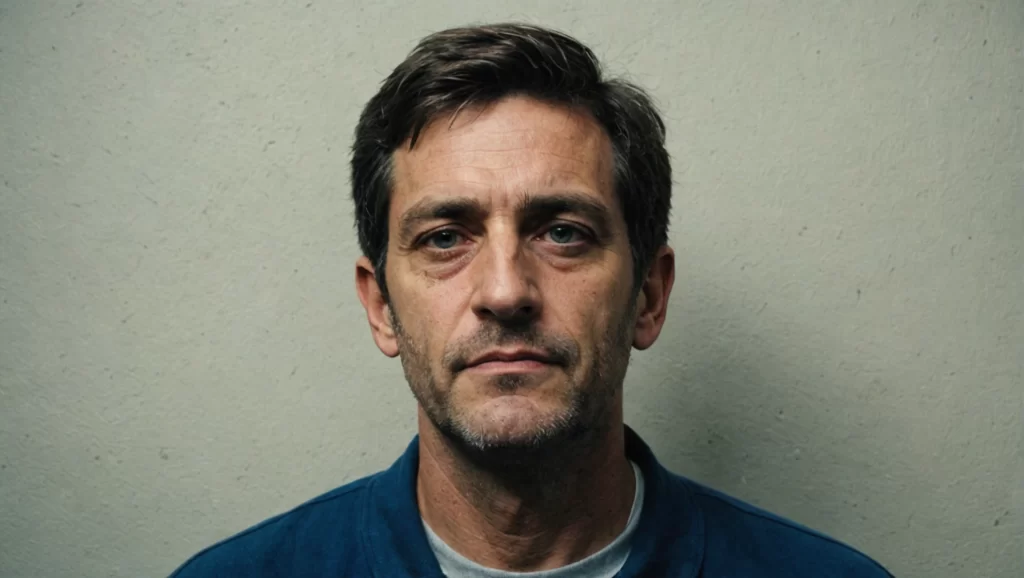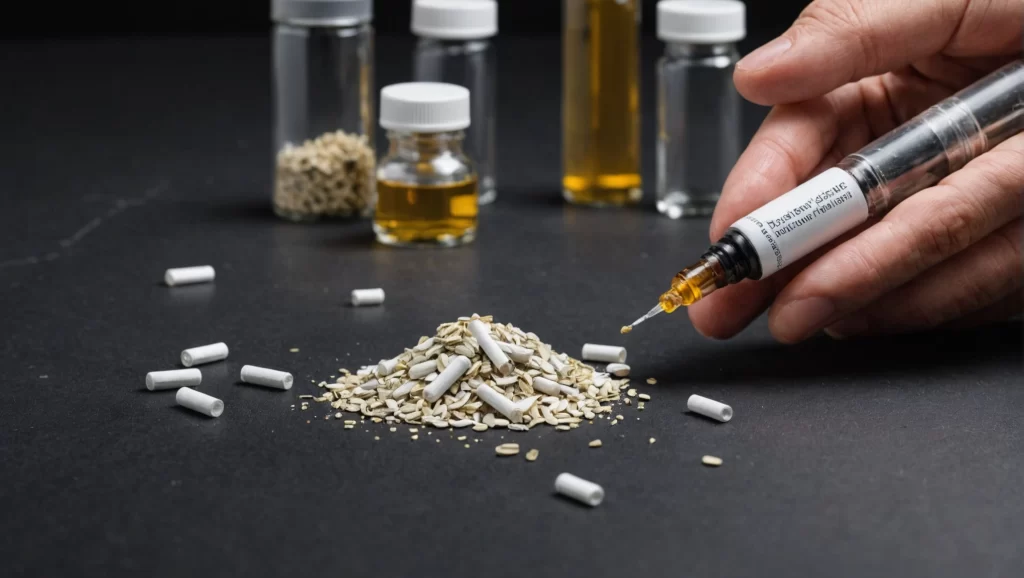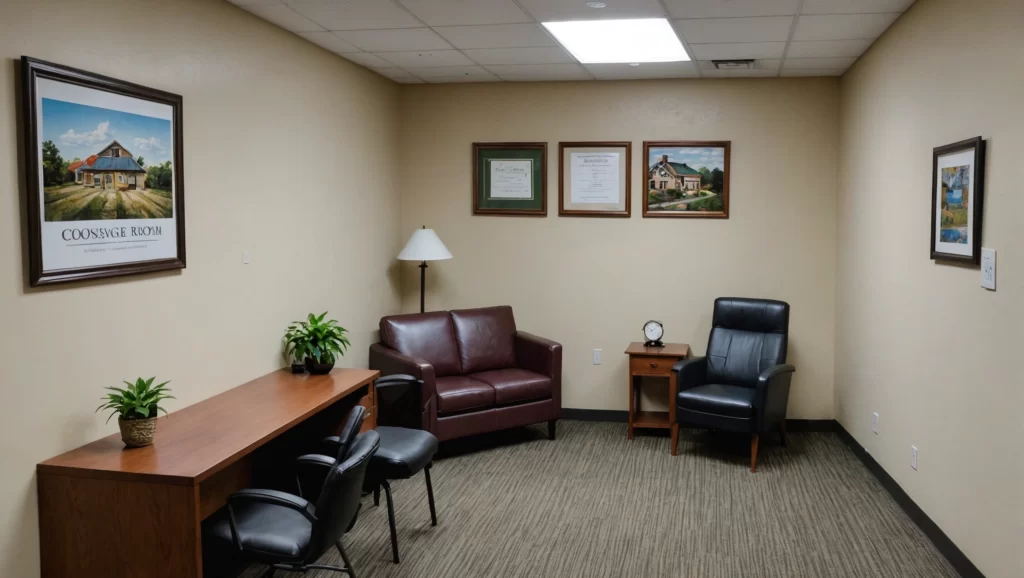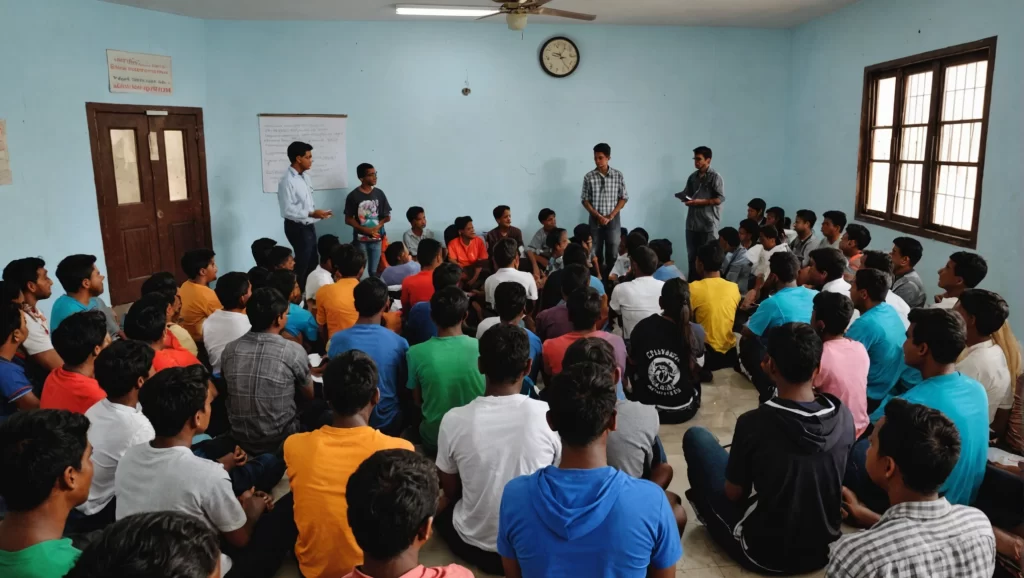
Drug addiction, especially heroin use, is spreading in many places, including Columbus. Not enough can be said about how much heroin addiction harms people. Columbus’s need for effective addiction treatment centers grows due to this severe issue. Heroin’s harmful effects require medical care, counseling, and ongoing assistance. Columbus treatment providers understand heroin addiction’s unique challenges and can help patients break the pattern. For heroin addicts, the Best Addiction Treatment Columbus project offers hope. This program uses evidence-based methods and compassionate care to help people overcome addiction and regain health. Explore the effects of heroin addiction and how Columbus addiction treatment facilities help combat this common problem.
The Menace of Heroin Addiction: Best Addiction Treatment Columbus
Root Causes of Heroin Addiction
Addiction to heroin is a complicated problem with several elements causing its start. Knowing the underlying reasons helps one to explain why people gravitate to this very addictive drug. Common root causes include trauma, genetic inclination, peer pressure, and environmental elements including simple drug access.
Physical and Mental Health Consequences
Addiction to heroin affects not just the physical condition of the person. It compromises their mental health, which has a domino effect on all elements of their lives. Physically, heroin usage can cause heart difficulties, breathing trouble, and a compromised immune system. Mentally, they could have cognitive problems, anxiety, paranoia, and sadness.
Challenges Faced by Addicts and Families
Addiction to heroin influences not just the person experiencing it but also their loved ones. Families try to help their addicted family members on the road to recovery, and they encounter many difficulties—from financial pressure to feelings of powerlessness. Addicts frequently face social stigma, trouble finding work, and ongoing struggle to control cravings and withdrawal symptoms. Family members could go through emotional upheaval, damaged relationships, and the weight of choosing treatment courses and rehab facilities.
Impact on Society
The effects of heroin addiction are seen in society and influence not just the person and their family but also the community as whole. Higher rates of addiction translate into more healthcare expenses, taxed social systems, and rising crime rates. Communities may also suffer from a loss of output since those struggling with addiction are unable to engage completely in the workforce.
Treatment and Recovery
Though the road to heroin addiction rehabilitation is difficult, it is not impossible. To help people kick their addiction, treatment choices include support groups, counseling, and medication-assisted therapy can be rather successful. The road of recovery depends much on the help of friends and family as well as on availability to thorough rehabilitation facilities.
Prevention Strategies
Dealing with the heroin addiction crisis calls for prevention most of all. Programs in early intervention, education, and community support can help people avoid sliding into the trap of addiction. Early identification of the underlying reasons and provision of support for at-risk people can help us to create a future whereby heroin addiction is less common and its negative consequences are reduced.
Addiction to heroin is a complex problem needing an all-encompassing treatment. Understanding the underlying causes, treating the physical and psychological effects, helping addicts and their families, and putting good preventative policies into practice can help us to fight the threat of heroin addiction and advance a society free from drugs.
Exploring Treatment Approaches: Best Addiction Treatment Columbus
Traditional vs. Modern Treatment Methods
About the treatment of addiction, the choice between traditional and modern methods is a main one that can significantly influence the course of recovery of a person. Common conventional therapy techniques abound in support groups, counseling, and behavioral therapies. These approaches focus on discovering the fundamental causes of addiction and building coping strategies to maintain soberness. Conversely, modern therapeutic techniques could use innovative ideas to enhance the recovery process including virtual reality treatment, biofeedback, or neurofeedback.
Role of Medication-Assisted Therapy
Medication-assisted therapy (MAT) is quite important in the treatment of addiction since it combines counseling and behavioral therapies with medicine to address drug use problems. MAT treats opioid and alcohol additions by lowering cravings, alleviating withdrawal symptoms, and blocking the rewarding benefits of these drugs. Combining medication with extensive treatment programs, MAT offers a whole approach to addiction rehabilitation.
Benefits of Holistic Treatment Programs
Holistically approaching addiction recovery implies treating the individual as whole—mind, body, and spirit. These classes stress the need for food, exercise, mindfulness techniques, alternative therapies including yoga or acupuncture to promote general well-being. Targeting all aspects of a person’s life, holistic treatment programs aim to offer a long-term sober basis with sustainability for emotional balance.
Innovations in Addiction Recovery
As clinicians and researchers look for original approaches to enhance therapy outcomes, the field of addiction recovery is continually evolving. From virtual reality exposure therapy for phobias to genetic testing for customized treatment plans, addiction recovery is witnessing creative advancements in many spheres. Maintaining knowledge of the most recent advancements in addiction therapy enables individuals to get creative treatments suited for their personal needs and preferences.
Regarding addiction, there are numerous approaches of therapy open. While some would prefer traditional methods, others would find their way to modern ones. Emphasizing the importance of medication-assisted therapy, the benefits of all-encompassing treatment plans, and the most recent advancements in addiction recovery, this blog section examines the nuances of many treatment approaches. Analyzing multiple approaches helps people with addiction make smart decisions about their road of recovery.

Specialized Care in Columbus: Best Addiction Treatment Columbus
Seeking particular therapy in Columbus allows people to gain from customized programs catered to match their particular medical needs. These initiatives provide tailored solutions for different requirements, including physical therapy, mental health counseling, and addiction treatment, therefore transcending the conventional one-size-fits-all approach. Stressing tailored care helps these facilities make sure patients get the exact attention required for their well-being.
Case Management Services
Negotiating the challenging landscape of healthcare can be terrifying especially for people with chronic medical issues. Dedicated case management programs and specialized care facilities in Columbus help to reduce this burden. Working directly with patients helps expert case managers plan patient care, act as advocates, and help to promote seamless integration of all therapy components. This all-encompassing approach optimizes therapy results and enhances patient experience as well.
Aftercare and Relapse Prevention Strategies
Recovery is an odyssey never ending even beyond the end of first treatment. Knowing this, Columbus’s specialist treatment centers emphasize the need of aftercare and avoidance of recurrence. These facilities help patients to keep their growth and lower their risk of relapse by means of specific strategies, individual counseling sessions, and ongoing support groups. After therapy, encouragement of a good environment allows patients to maintain their well-being and achieve long-term healing.
Innovative Therapies and Holistic Approaches
Apart from conventional treatment choices, specialized care facilities in Columbus often provide unique therapies and holistic techniques to tackle various health issues. These complementary alternative therapies—art therapy, yoga classes, mindfulness practices—complement traditional medical treatments, therefore promoting general wellness and recovery. By using a holistic view of healthcare, these facilities not only meet the several needs of people but also encourage complete well-being.
Community Engagement and Outreach Programs
Specialized care facilities in Columbus actively engage the community by way of outreach initiatives and educational events. These facilities facilitate community events, provide resources, and raise knowledge of health-related topics thereby benefiting the overall welfare of the population. Specialized care providers in Columbus want to create a supportive network outside of their facilities by means of cooperative efforts and community alliances, thereby promoting health and wellbeing all throughout the area.
Support Services for Comprehensive Recovery: Best Addiction Treatment Columbus
Group and Individual Counseling: Building Strong Foundations.
Group and personal counseling will play a major role on the path of healing. These workshops give participants a safe environment to express their thoughts, emotions, and challenges under the direction and help of competent professionals. Group counseling helps to build a feeling of community and shared experiences, therefore reducing feelings of isolation and enhancing relationships able to last lifetime. On the other hand, individual therapy provides tailored attention allowing one to explore personal issues and use certain therapeutic approaches.
Psychiatric and Mental Health Services: Addressing the Root Causes.
Many times, thorough recovery involves treating underlying mental health problems that might encourage drug abuse. Psychiatric services offer assessments, diagnoses, and treatment plans tailored to the specific need of the patient. Together with treatment, medication management helps individuals to correctly control their symptoms, develop effective coping mechanisms, and pursue continuous recovery.
Child-Focused Support Programs: The Impact of Child-Focused Support Programs.
Recovering impacts the entire family; it is not a voyage made by one person. Since they recognize the necessity of family dynamics in the recovery process, child-oriented support programs provide specific help to help parents in maintaining sober while performing their parental responsibilities. These programs give kids a caring environment, tools for parents, and methods to strengthen family relationships and communication.
Therapeutic Behavioral Services: A Key to Lasting Recovery.
Therapeutic behavioral programs emphasize on identifying maladaptive behaviors and developing coping strategies to navigate daily responsibilities without resorting to drugs or alcohol. By means of the resolution of behavioral issues and emotional triggers, people can break out from negative cycles and promote improved strategies of stress and difficulty management. These initiatives let individuals control their behavior and apply positive changes aimed for long-term healing.
Day Treatment Programs and Outpatient Services.
Flexible Support for Sustainable Recovery.
Combining structure and flexibility, day treatment programs and outpatient services allow patients manage their daily responsibilities while continuing in treatment. These programs provide a spectrum of therapy with varying degrees of intensity to meet every evolving need. Day programs and outpatient treatments offer therapeutic activities, counseling sessions, and skill-building seminars to give people the tools and approaches needed to handle challenges and maintain their recovery goals.

Community Involvement and Resources
Helping people on their road to recovery depends much on community involvement. Support groups in the community give people a safe environment where they may discuss their experiences and get direction as well as a feeling of understanding and belonging. These organizations provide both emotional support and useful guidance on coping strategies and resource availability.
Role of Community Support Groups
Provide sense of belonging
Offer emotional support
Share experiences
Seek guidance
Practical advice on coping mechanisms
Access to resources
Access to Medicaid Services
Our Access to Medicaid services is essential for individuals seeking treatment for substance abuse. It provides coverage for various treatments, including therapy and medication, making recovery more accessible and affordable. By breaking down financial barriers, individuals can focus on their recovery without the stress of high costs.
Access to Medicaid Services: Best Addiction Treatment Columbus
Coverage for treatments
Therapy and medication
Engagement with Educational Programs: Best Addiction Treatment Columbus
Engaging with educational programs is another valuable resource for individuals in recovery. These programs offer opportunities to learn new skills, pursue interests, and build a sense of accomplishment. Education empowers individuals and opens doors to new possibilities, aiding in their journey towards a fulfilling life.
Empowering Through Knowledge: Engagement with Educational Programs
Learn new skills
Pursue interests
Build a sense of accomplishment
Incorporating Family Support in Recovery: Best Addiction Treatment Columbus
Incorporating family support is a key component of successful recovery. Family members provide love, encouragement, and understanding, creating a strong support system for individuals. By involving family in the recovery process, individuals feel connected and motivated to make positive changes.
Incorporating Family Support in Recovery: Best Addiction Treatment Columbus
Love, encouragement, understanding
Strong support system
Connected and motivated individuals
Moreover, community involvement goes beyond support groups. By helping someone to feel more purposeful and engaged through neighborhood activities or community service projects, one aids to increase their will in recovery.
Apart from treatment, Medicaid supports mental health services to ensure that individuals obtain whole treatment for their psychological as well as physical well-being. This all-encompassing approach addresses the numerous facets of drug abuse rehabilitation.
Building a Strong Foundation: The Role of Education, Family Support, and Community Engagement in Sustained Recovery
From vocational training to art therapy, educational courses meet a range of needs and interests. Crucially for maintaining soberness, these courses not only teach skills but also boost self-esteem and confidence.
Family help encompasses conflict resolution strategies and communication skills, therefore fostering positive relationships and a suitable surroundings fit for rehabilitation. Including family members in support groups or therapy sessions will help to strengthen knowledge and build relationships.
For those in recovery, a strong basis is created by the synergy of community involvement, Medicaid access, active participation in educational events, and family member unwavering support. Good use of these tools helps people to handle the challenges of recovery with resilience and resolve, enabling a better and more happy life.

Overcoming Stigma and Building Awareness: Best Addiction Treatment Columbus
Addressing Misconceptions about Addiction: Best Addiction Treatment Columbus
Addiction: A Disease, Not a Choice
Breaking Down the Stigma
The Role of Genetics in Addiction
Promoting Acceptance and Understanding: Best Addiction Treatment Columbus
Empathy and Support: Key to Recovery
Stories of Hope and Resilience
The Impact of Trauma on Addiction
Educating the Public on Treatment Options: Best Addiction Treatment Columbus
Therapy and Counseling: A Path to Healing
Medication-Assisted Treatment: Dispelling Myths
Support Groups and Peer Networks
Explanations, acceptance, and information on treatment choices are crucial in a society where addiction is stigmatized. Addiction is better understood and encouraged, not blamed. We can create a more informed and caring society that lets people heal by reducing stigma. Removing addiction stigma is a difficult but necessary step in helping someone with drug use disorders. To overcome addiction misconceptions, recognize it as a sickness rather than a moral failing or decision. Teaching society about addiction’s medical and scientific components might alleviate guilt and shame. Acceptance and understanding require empathy and support for recovering people. Sharing stories of resiliency and hope inspires others and shows recovery is possible. Creating a secure space for help-seekers requires empathy and support. Understanding trauma, addiction, and DNA helps personalize people’s struggles.
Enhancing Recovery Through Public Awareness: The Impact of Counseling, Therapy, and Peer Support Networks
Public awareness of the various options determines whether patients receive appropriate therapy. Treating basic issues generating addiction can benefit from counseling and therapy as effective tools. Moreover demonstrated to be effective in reducing the chance of recurrence and managing withdrawal symptoms is medication-assisted treatment. Emphasizing the importance of connection in recovery, peer networks and support groups can provide ongoing assistance as well as a feeling of community. Encouragement of people to seek therapy without regard to criticism hinges on dispelling incorrect assumptions about these available choices. Increasing understanding and awareness will enable us to combat the stigma associated with addiction and provide a supporting network for people on their path of recovery.

Conclusion
For people struggling with heroin, it is essential to discuss its horrible effects on health using the best addiction treatment Columbus Ohio offers. Comprehensive and customized treatment involving medical interventions, therapy, and support services helps people start along the road toward recovery and a happier, drug-free life. Communities and medical professionals have to maintain demanding freely accessible and effective addiction treatment alternatives to help to offset the harmful consequences of heroin addiction on individuals and society at large.
📞 Contact us at (614) 618-5000
🌐 Visit ridgelinerecovery.com
For more stories and information visit our Blog page and Stories & Highlights.
